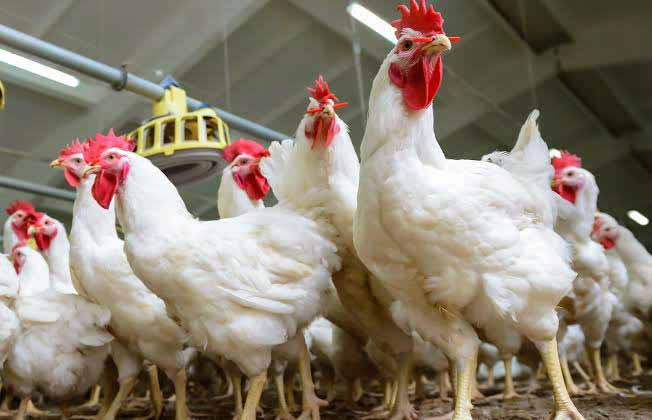Governments across the world have been challenged to put a stop on approving new factory farms where animals are given antibiotics to promote fast growth.
Animal welfare activists at the World Animal Protection organisation say that constant use of antibiotics to promote faster growth, puts the health of consumers of the animal products at risk.
The majority of these animals suffer in factory farms where they are dosed with antibiotics in their feed or water to prevent them succumbing to disease as a result of cruel treatment, say activists.
These were the views expressed by animal welfare activists at the World Animal Protection Organisation while welcoming European Union’s strict new laws on antibiotics which came into force on Friday. The rules include a ban on routine use of antibiotics on farmed animals which are not sick.
Dr. Victor Yamo, Farming Campaigns Manager, World Animal Protection says that all countries around the world need to wake up to the fact that pumping animals wIth antibiotics to mask poor welfare absolutely has to stop.
Yamo adds that the move by the European Union is the most progressive in the world, stressing that the European Union is paving a bold new path to address the global superbug crisis and now farms are going to have to lift their game.
“We all need to end factory farming and ensure remaining farmed animals live good lives in humane and sustainable systems.” said Dr.Yamo
Across Europe, there are more than 300 million caged farmed animals and 7.2 billion meat chickens produced each year.
The new regulations mean that only sick, individual animals (and not whole herds) may be administered with antibiotics.
Scientists say that the overuse of antibiotics is resulting in a global public health crisis, with as many as 3,500 human deaths worldwide from antimicrobial resistant infections (superbugs) on a daily basis.
Studies show that around three-quarters of the world’s antibiotics are used on farmed animals especially on cruel factory farms.
In contrast, animals living in high welfare farms are healthier and more resilient to disease, and are not reliant on antibiotics.
Dr. Yamo says that whereas Europe is the world’s biggest importer of food, these new regulations will also have implications on Africa’s large-scale farmers.
He adds that Africa as a bloc will also reject imports of live animals or animal products where antibiotics have been used to promote fast growth of animals.
It is imperative the European Union fully implements and enforces the new rules for animal production within Europe, and with trade partners.
“Behind closed doors, chickens are grown so fast they can’t even stand, and piglets are routinely mutilated. Billions of animals born into factory farms live a life of misery. This may provide people with cheap meat, but we are paying the price with our health”notted Dr Yamo.
The experts further explain that farmed animals should instead be raised in cruelty-free, humane and sustainable systems where their needs are fully met.
In situations where animal welfare is priority the animals are more resilient to disease, and farmers will not require routine dosing with antibiotics.








